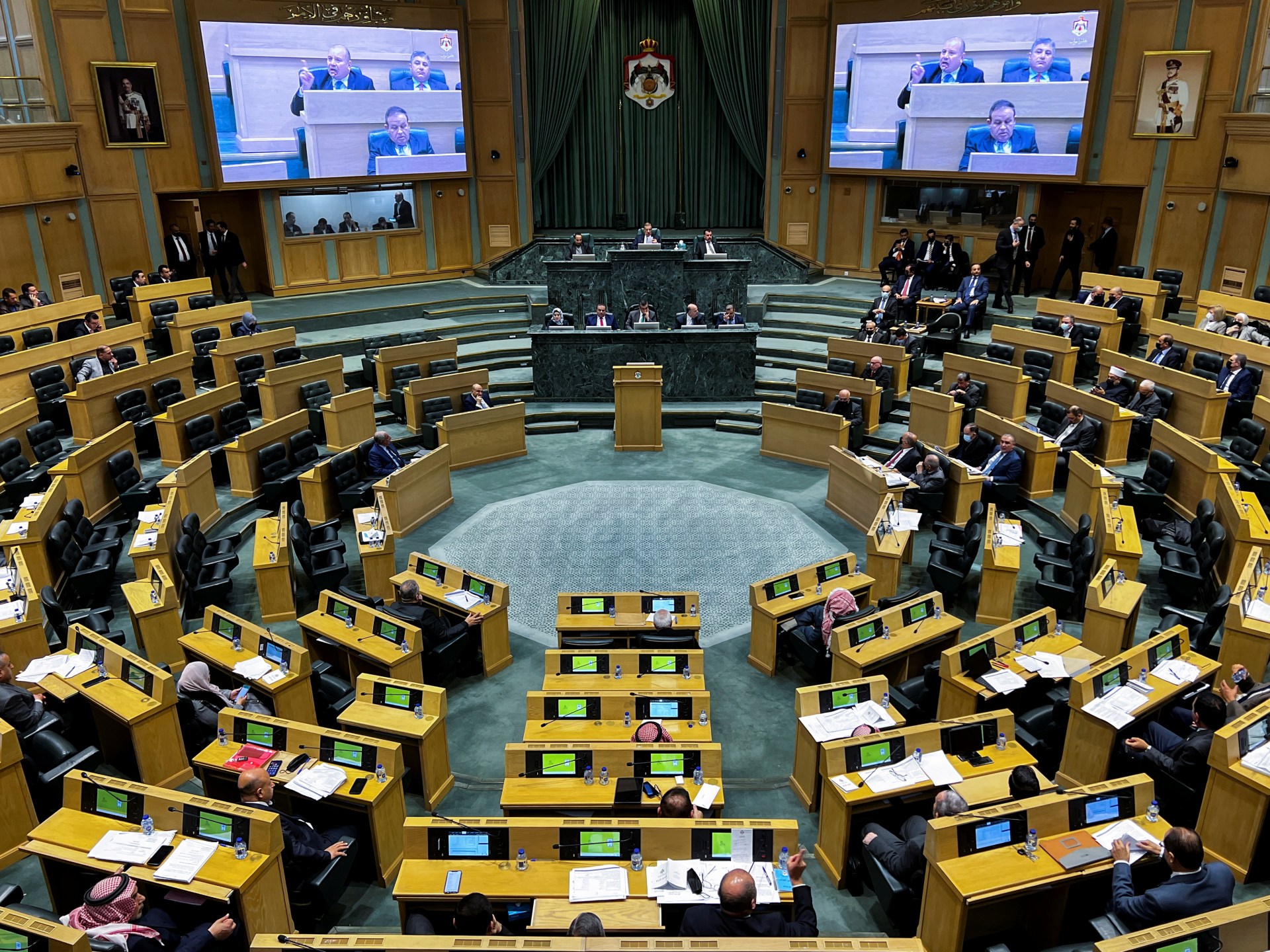Oman "Jordan's map is not just borders, but the keys to hell that Jordanians draw with their blood," Jordan's Deputy Prime Minister and Minister of Local Administration, Tawfiq Krishan, made strong remarks at a parliamentary session devoted to responding to the Israeli finance minister's provocations.
Tensions between Jordan and Israel escalated after Israeli Minister Bezalel Smotrich delivered a speech last Sunday in Paris, from a podium with a map of Israel that includes the occupied territories of Palestine and the Hashemite Kingdom of Jordan.
The statements of the Jordanian Deputy Prime Minister represented a rapprochement between the parliamentary and governmental position on the crisis with Israel, and the parliamentary session came out with a recommendation to expel the Israeli ambassador in Amman against the backdrop of the current crisis.
Krishan not only waved strong words, but also recalled the battle of dignity in clear terms that cannot be interpreted, in which he said, "We taught the enemies a harsh lesson from the Jordanian heroism, who were humiliated and defeated in the Jordanian field of dignity, and we conquered the army, which was delusionally believed to be invincible, by the hands of the army and the heroes of the Jordanian army."
Reciprocity
During the session, Jordanian MPs uploaded the entire map of Jordan and Palestine from the sea to the river, on the podium under the dome, in response to Smotrich's map in Paris, which he drew by considering Jordan and Palestine as one part of Israel.
The head of the Palestine Parliamentary Committee, MP Fayez Basbous, does not believe that the speech of the Jordanian deputy prime minister is a passing talk intended to absorb Jordanian anger, but rather "it is an accurate expression of Jordan's official position towards the extremist government of Benjamin Netanyahu."
Basbous realizes – in a statement to Al Jazeera Net – that the essence of the battle is that Benjamin Netanyahu and his cabinet ministers sought to clash with Jordan before they reached power in Israel, pointing to the congruence of the positions of the legislative and executive authorities in the face of Netanyahu's far-right government.
"The parliament will remain firm on its position and will take escalatory and decisive steps after the Israeli right-wing government has crossed the red border," Basbous said.
The House of Representatives' vote to expel the Israeli ambassador followed a press conference held by Jordanian Foreign Minister Ayman Safadi, during which he described the Israeli finance minister's behavior as "inflammatory and racist."
Saleh al-Armouti: The Jordanian Foreign Minister's statement does not rise to the level of the blood of the martyrs (Reuters)
Official outrage
Although the Jordanian parliament usually demands the expulsion of the Israeli ambassador from Amman while the government does not respond to these demands, this time it looks different, even though Jordan's actions remain in the circle of traditional official anger.
MP Saleh al-Armouti calls on MPs to work to activate their constitutional right and to commit the government to the result of the MPs' vote, but it is unlikely that the Council will go far in the path of putting confidence in the government if it does not respond to the Council.
Armouti added – in a statement to Al Jazeera Net – that Ayman Safadi's statement does not amount to the blood of the martyrs, considering the behavior of the Israeli minister "an attack on Jordan's sovereignty," wondering about Jordan's failure to file a complaint with the Security Council, "especially since the Zionist project based on the Jewishness of the state challenges Jordan completely, as an authentic homeland for the Palestinians."
For his part, political analyst Oraib Rintawi – in a statement to Al Jazeera Net – that what happened parliamentary and governmental is an extension of the state of popular anger against the "government of the Israeli enemy."
Rintawi called for translating Jordan's anger away from official statements and shifting to new policies that begin with gradual disengagement, withdrawal from the Aqaba and Sharm el-Sheikh tracks and all agreements with Israel.
Rintawi spoke of a new viable road map, starting with a downsizing of diplomacy with Israel, stopping security coordination and boycotting the Israeli government, at which point Jordan will be able to embarrass the Israeli government internationally.

